S3E32 / Badass Moms & Youth / Allison Volkman, Anneliese Dickman, Eli Counce, Michelle Roehm McCann, Penelope Spurr
For a long time, there was a passion gap between the gun-rights and gun violence prevention movements. But then Sandy Hook and Parkland sparked a change… for moms and youth.
Note: This season of American Diagnosis was originally published under the title In Sickness & In Health.
This podcast was created by Just Human Productions. We’re powered and distributed by Simplecast. We’re supported, in part, by listeners like you.
Celine Gounder: Hi, everyone. Dr. Celine Gounder, here. I’m the host of “In Sickness and in Health.”
Celine Gounder: Poor health, it isn’t random. On this podcast, we explain what exactly is making millions of Americans sick, and what we can do about it. It isn’t just about politicians arguing in Washington or what kind of insurance you have. Health is a symptom of something much bigger. Those are the stories we bring you season after season.
Celine Gounder: This holiday season, give the gift of storytelling: stories about our health, stories for impact. Please consider becoming a member. Go to glow.fm/insicknessandinhealth and make a contribution today. We’re a 501(c)(3) non-profit organization, so your gift is tax-deductible. Thanks for listening, and thanks for your support. Now, here’s the show.
Michelle Roehm McCann: …they felt this sense of frustration after Parkland, and they banded together
Eli Counce: You know, you get punched in the gut, it hurts for a day, but then you back and you say, “Okay, how do I fight back?”
Allison Volkman: …it’s been extremely rewarding to finally feel like we’re moving the needle.
Celine Gounder: Welcome back to “In Sickness and in Health,” a podcast about health and social justice. I’m Dr. Celine Gounder. This season we’re looking at gun violence in America.
Celine Gounder: When we started working on this episode, deer season was just wrapping up in Wisconsin, and that’s a big deal for a lot of people.
Allison Volkman: My high school shut down during hunting season ‘cause all the boys were gone, so we got ten days off.
Celine Gounder: This is Allison Volkman. She lives in Madison, Wisconsin. Allison was a fundraiser. She had her own business, and she had two young kids. Then in 2012, she and parents all over the United States heard the news coming out of Newtown, Connecticut.
…here in Newtown, Connecticut, the site today of a mass shooting, and this time, gunfire aimed at elementary school children.
…every moment. I hate to bring this up, but it gives me the sense of Columbine, and just how massive the scope of this story…
…and they started to hear some banging, and the teachers told them that it was a lockdown. I was actually, I’ve got to say, surprised that kids knew what a lockdown was. I think that’s sort of a sad statement. They’d practiced this before.
…the bodies of those children are still in the school. Eighteen children died in the school, were dead on the scene. Two more were taken to the hospital and died there.
Allison Volkman: When Sandy Hook happened, my eldest daughter was the same age as the children who were killed. And I just remember the overwhelming urge of wanting to go to my daughter’s school and get her. And I didn’t go get her. I went to pick her up at the end of the day like everyone else did, and as soon as I saw her teacher, which was a, who’s a young man of not-yet 30 years old, a kindergarten teacher, I could tell in his face that he knew what had happened that day. And it was just a powerful moment of realizing that my feelings about my child, and being scared as a parent, that he had parents too, and that there were teachers shot, too, that day. And that sort of began my journey in becoming involved in Moms Demand Action as a volunteer and participating in the different events that they had, and in writing letters, and in making calls, and really jumping into that space as a volunteer.
Celine Gounder: How old was, were your kids at the time of the Sandy Hook shooting?
Allison Volkman: Uh, Sandy Hook. My eldest was in kindergarten, and my youngest would have been, not even in, you know, she would have been in preschool.
Celine Gounder: Her kids were old enough to understand what happened in 2018 when seventeen students and teachers were shot to death at Marjory Stoneman Douglas High School. It was her daughter’s gym teacher who explained what had happened.
Allison Volkman: He wanted them to be prepared in case they were in gym class and there was a code red. They knew what code reds were. They didn’t know why they were doing them. They’ve never gone to school without code red drills.
Celine Gounder: A code red. If you don’t have kids in school or work in one, you might not know about these. At the school Allison’s kids attend, a code red is an active shooter drill.
Allison Volkman: My youngest, when she was in kindergarten, actually kind of injured her arm because they were pulling a teacher’s desk to barricade the door for the code red drill. They didn’t know it was a drill. The principal would walk around and try to open the door because you had to have the doors locked. Well, the children didn’t understand that. They thought it was the bad guy trying to get into their room. So at code red drills, we would always counsel our kids, and just try to make them feel safe. They were scared…
Celine Gounder: Children preparing for what to do if a shooter comes to their school is the new normal all over America.
Allison Volkman: My eldest… she’s 13 now, but when… Parkland happened, she was sick of it. … And she decided to, she said, “How do you get in the newspaper?” And I said, “Oh, well there’s, you can write a letter.” And then, so she wrote a letter, and I thought it would end there. “How do you get it actually in the newspaper though, mom?” And so I sat down with her at the computer and said, “I’ve never submitted a letter to the editor. Let’s figure it out.” Click, click, click. We submitted it, and she was published two days later. She’s had four letters to the editor published, all about gun violence prevention, with the last one ending with a threat that if the current legislation doesn’t fix this problem, then… she will be running for office.
Celine Gounder: Wow. What’s her name?
Allison Volkman: Her name is Maxine Volkman. V-O-L-K-M-A-N.
Celine Gounder: Wow.
Allison Volkman: So she was just so brave to do that. And with my other daughter’s minor injury with moving this desk, that’s what really propelled me to say, if they’re brave enough to do this, if they have to do this, then I can get into this…
Celine Gounder: So Allison quit her job. She started working as an organizer with Doctors for America’s gun violence prevention program.
Celine Gounder: In this episode, we’ll hear from other moms like Allison… and kids… who are jumping into the gun violence prevention fight like never before.
Celine Gounder: We’ll hear why they’re taking action.
Michelle Roehm McCann: Before that, I sort of thought to myself, “That won’t happen to me or my kids. Our community is really safe. What are the chances?” …that illusion just crumbled…
Celine Gounder: We’ll hear how they’re organizing.
Penelope Spurr: And he said, “Well, why don’t you write a bill? Why don’t you write legislation?” And it kind of blew my mind.
Celine Gounder: And why this time, things are different.
Anneliese Dickman: Since Parkland, I think that myth has been erased. There is no more enthusiasm gap.
Celine Gounder: On this episode of “In Sickness and in Health,” stories of moms and kids taking action on gun reform.
Anneliese Dickman: Hello?
Celine Gounder: Hi, it’s Celine Gounder calling. Is this still a good time to talk?
Anneliese Dickman: Yes!
Celine Gounder: Anneliese Dickman lives in Milwaukee, Wisconsin. She was working as a public policy researcher there when she heard the news one day…
Anneliese Dickman: I have a daughter whose name is Avielle, and in 2012, she was in first grade. So when Sandy Hook happened, it felt very close to home. And then when the list of names of the victims came out, there was an Avielle. Avielle Richman was one of the victims. To have a daughter the same age, the same name, and where we live in Wisconsin is so similar to Newtown, it just felt like, you know, we were spared.
Celine Gounder: Anneliese decided she wasn’t going to wait for something like Sandy Hook to happen in her community.
Anneliese Dickman: My background, my professional background, is in public policy research, and I just thought I should be able to help solve what seemed to be a very solvable problem, a problem of public policy, and I was working full-time at the time, but within six months, I had left my job and started volunteering full-time for gun violence prevention efforts in Wisconsin.
Celine Gounder: Moms Demand Action had just started. Anneliese created the organization’s Facebook page for Wisconsin. She also started working with a group called WAVE — the Wisconsin Anti-Violence Effort Educational Fund.
Anneliese Dickman: Honestly, my house has been the messiest house, um, since I started working on this. I just let go of things that used to be really important to me, and I decided aren’t so important anymore.
Celine Gounder: Sandy Hook inspired Anneliese to take action on gun violence prevention, but it energized the gun rights movement too. After Sandy Hook, gun laws in Wisconsin got much, much looser. Background checks… 48-hour waiting periods… all of these gun safety measures were repealed by the state legislature.
Celine Gounder: In 2016, there was another bill in the statehouse to expand gun rights. This one would allow concealed carry on school grounds.
Anneliese Dickman: It was so extreme that, and it, you know, seemed like, how do we even have a chance of fighting this? So I just started calling and emailing people and saying, “Did you know about this bill?”
Celine Gounder: She reached out to teachers and administrators. And then she reached out to parents.
Anneliese Dickman: We basically created a toolkit that any parent could use to go to their school board and ask the school board to pass a resolution opposed to this bill. And then communicate that the school board had a position, and then pass the resolution, and communicate that with the legislature.
Anneliese Dickman: It was amazing to see people all across the state just really become activists in their own backyards, talking to their, you know, hyper-local elected officials about something, and those elected officials really listened and then communicated to their fellow elected officials in the legislature, and the legislature listened.
Anneliese Dickman: It was exciting to see it happen, and it worked. The bill never got out of committee.
Celine Gounder: When Anneliese first started volunteering for gun reform, friends told her it would be unlike anything she’d ever worked on before.
Anneliese Dickman: It was different because the political wisdom, the common wisdom, was, held something to be true that really wasn’t. And it was hard to disabuse people of that notion. They just had it so ingrained in their head that constituents are evenly split on this issue, and one side is just so much more vocal and powerful than the other, and I could not get people to see that that just wasn’t the case. People were pretty unified on this issue and unified around the need for stronger laws.
Anneliese Dickman: At the time, they called it an enthusiasm gap.
Anneliese Dickman: Busting that myth that only one side is engaged, and only one side cares, and only one side votes, is how we’re making progress right now.
Anneliese Dickman: Since Parkland, I think that myth has been erased. There is no more enthusiasm gap.
Celine Gounder: A few years later, on the other side of the country, in Oregon, another group was taking action. And this time it was students.
Penelope Spurr: OK. Um, so my name is Penelope Spurr. I am 17 years old. I currently live in Portland, Oregon. I have been involved in the gun violence prevention movement for about two-and-a-half years now.
Eli Counce: I am Eli Counce. I’m a junior at Lakeridge High School, which is in the Lake Oswego School District near Portland.
Celine Gounder: Anneliese and Allison’s journeys as gun violence prevention advocates started with Sandy Hook. For Penelope and Eli, that started on Valentine’s Day, 2018.
Eli Counce: I actually came home from school early that day…
Penelope Spurr: I actually had a day off that day, February 14th.
Eli Counce: I was excited to enjoy my Valentine’s Day, and I turned on the news… and that’s, I mean, when it hit.
Penelope Spurr: I’m subscribed to The New York Times, and I got one of those alerts…
Eli Counce: When I heard, I sat down, a little bit numb. I just remember my eyes being glued to the screen, and the only snippets that I remember hearing were the increasing estimated death toll…
Penelope Spurr: And then I saw the alert in my inbox that said, “Seventeen dead in Parkland,” and I just, I kind of felt my stomach drop.
Celine Gounder: Eli and Penelope felt helpless. They felt anxious. Was their school next? But they weren’t alone.
Penelope Spurr: In the next few days, I was kind of hyper-aware of how other students were responding, and I could start to sense this kind of mass, mass motivation, mass sentiment. Then in those next few days, that’s when I was talking to this mutual friend who set me up with Eli, and everything started to kind of, for lack of a better word, sort of fall into place. And it just kind of just sparked that fire, I guess, that has kind of kept, kept me and kept Students for Change sort of going throughout the past two years.
Celine Gounder: Students for Change was a gun violence prevention group founded by Eli, Penelope, and other students from across the Portland area.
Eli Counce: The fact that we were just doing something after that instead of being sitting ducks, I mean, that was the real fear. That’s why my anxiety started to decrease was because we were going to change something to get it done.
Celine Gounder: When the survivors of the Parkland shooting announced the March for Our Lives, students across the U.S. joined the more the one million protesters in Washington, D.C. by walking out of their schools demanding gun reform. Eli and Penelope wanted to do something too.
Eli Counce: The Lake Oswego School District does walkouts at various schools for various issues, and we’ve done them somewhat frequently in the past, and it just felt like not enough.
Celine Gounder: So they aimed higher. They started a GoFundMe page, got donations from the community and students’ families. They raised the funds to rent buses to take their case to the state capitol. In all, several hundred students from Eli and Penelope’s schools went to Salem to march, chant, and give speeches.
We are the empowered youth! We are the empowered youth! We are the empowered youth! Woo!
Penelope Spurr: Afterwards, we went into the Capitol building, and that’s where we were all in the rotunda, which is this big room right when you enter the Capitol building. And we all sat on the steps and… we met with Governor Brown, a representative for Kurt Schrader, who’s our U.S. Congressman, and our district representative Andrea Salinas, and our district Senator Rob Wagner.
Penelope Spurr: There was sort of a lot of like, “We love what you’re doing. Continue the good work…”
You can reach out to other students across the state.
Penelope Spurr: “…Fight the good fight. Continue to use your voice. You are the generation.”
This is where it starts. So thank you, thank you, thank you.
Celine Gounder: But for Penelope, meeting lawmakers left her wondering what was backing up those words of encouragement.
Penelope Spurr: Aside from me, just “raising my voice” or bringing a poster and chanting, what kind of change am I actually being a part of, like what legislation am I actually getting passed? I started to realize… that there was a lot more to the movement that I had not been as exposed to and that was kind of the realm of legislation and policy.
Celine Gounder: After the trip to Salem, the organizers of Students for Change met up at Penelope’s house.
Penelope Spurr: The iconic house meeting.
Penelope Spurr: We were all just kind of sitting around in my living room. I think it was on a Saturday morning or something. So everyone was kind of, I guess, up and early, and we all kind of came together. It was totally informal…
Celine Gounder: Informal, besides the state senator who dropped by: Rob Wagner.
Eli Counce: At the time, what it looked like was … how can we leave a legacy on this group and on this issue? And then part of it was like, “Hey, what are we going to be doing all the way up into next year, and the year after that?”
Penelope Spurr: And Senator Wagner, he kind of politely interrupted our discussion. And he said, well, “Why don’t you write a bill? Why don’t you write legislation?” And it kind of blew my mind.
Penelope Spurr: I hadn’t thought about that at all, because I, kind of, had thought of legislation as only being written and proposed by legislators themselves, so for one to tell me that I was capable of writing legislation was kind of mind-blowing for me. From there on, we started talking about our options. We could have proposed a ballot measure… but what we ended up deciding on was actually writing a bill that would be proposed several months later as SB501.
Celine Gounder: The bill the students wrote covered permit-to-purchase; limits on the number of guns and ammo that could be bought in a month; safe storage; limits on high capacity magazines; and a 14-day waiting period.
Eli Counce: I also just want to mention one thing: that everything that was in the bill had already been passed in other states as policy.
Celine Gounder: So in 2019, State Senator Rob Wagner and State Representative Andrea Salinas sponsored the bill. Eli, Penelope, and other students went to Salem again. This time to meet with the head of the state’s Judiciary Committee, Senator Floyd Prozanski.
Eli Counce: Prozanski was one of the first meetings throughout the day, and he was one of the more important ones as it had to pass his Judiciary Committee.
Eli Counce: He, like I said, opened the meeting by immediately saying, “You know, I’m not really going to support this bill.”
Eli Counce: …one of the words he used was “toxic.”
Penelope Spurr: …almost word for word, he said, “This is the most toxic bill in any legislature right now.” And it kind of stopped us in our tracks, because it was really difficult to respond to that.
Penelope Spurr: There was, just kind of, this silence in the room. And for me, I was, I was pretty embarrassed. I was pretty mortified, and I didn’t know how to respond, because this was someone who was giving us a really honest response.
Celine Gounder: The bill was dead on arrival. It never got out of committee.
Eli Counce: SB501 is currently rejected…
Eli Counce: For us, in the future, I think it’s just continuing to make students understand that they have a voice, that they can control their environment, that they don’t have to feel unsafe in school, and that they could say something if they do. I think, really, it’s about instilling a culture where that’s acceptable, where students feel comfortable talking about that anxiety and where they feel invigorated to, to go out and change their circumstances.
Michelle Roehm McCann: You know, their bill was enormous.
Celine Gounder: This is Michelle Roehm McCann. She writes children’s books. Michelle also lives in Portland.
Michelle Roehm McCann: I mean, if their bill got passed, we would be in such good shape because it had everything we needed in it. It was amazing.
Celine Gounder: Michelle — like everyone we spoke to for this episode — was frustrated by the never-ending gun violence and inaction by lawmakers.
Michelle Roehm McCann: I feel like 2012 was, kind of, my personal turning point. When, um, that was the year my kids were nine and eleven, and we were at a family reunion in Aurora, Colorado, and that was when the movie theater shooting happened.
Michelle Roehm McCann: And then later that same year, on December 11th, we had a shooting here in Oregon, where we live, at the Clackamas Town Center. And that’s the mall that we go to. That’s where we do our Christmas shopping. And so that also shook me up.
Celine Gounder: Michelle had been active in Moms Demand Action after 2012. She also went to the Oregon statehouse in Salem to demand gun reform. But she was feeling frustrated with the glacial pace of change.
Michelle Roehm McCann: I personally really wanted to do more, and I was struggling with like, “Well, what can I do more than what, you know, anybody else is doing?” Like, I’m not an expert, but I had this epiphany, which is a stupid epiphany, but I’m like, I write children’s books. … That’s what I do, I write and publish children’s books. Like, I can write a children’s book, and I can actually teach kids about what’s going on? Like how did we get here?
Celine Gounder: So Michelle wrote Enough is Enough: How Students Can Join the Fight for Gun Safety. It’s part gun violence education, part political field guide.
Michelle Roehm McCann: Almost every social movement began with young people, people in their teens and twenties. …shifts happen when young people… get involved in these movements. So, I don’t believe the gun violence prevention movement is any different.
Celine Gounder: Eli and Penelope were both featured in the book. Even though SB501 didn’t advance in the statehouse, Michelle says it’s still an energizing example of what students can do.
Michelle Roehm McCann: I feel like the things that I’ve seen the legislators voting on since that happened, you know, there are pieces of their bill that are being pulled out and voted on. And so I feel like for kids to hold up a model of what we wanted to ask for it and make demands about it, is shifting things, and it is pushing politicians to make the right decisions.
Michelle Roehm McCann: …there’s going to come a tipping point where it does go into the national arena. So yeah, that’s how I feel about Eli and Penelope. They are very inspiring to me.
Celine Gounder: I heard a similar story from everyone I spoke with in this episode. It was a story that started with a feeling of powerlessness.
Allison Volkman: Yes, a feeling of paralysis, I suppose, with having young kids and having these shootings happen and not knowing what to do.
Eli Counce: I reached out to my teachers. I said, “I feel a little bit hopeless, frankly, a little bit scared for my life.”
Celine Gounder: But then, that feeling started to go away when they did something, no matter how small it was.
Michelle Roehm McCann: I went from feeling really frustrated and angry and helpless to actually feeling a lot more positive about everything because I was doing something for the first time.
Anneliese Dickman: It really is as simple as saying every time I get an email from, you know, whatever group you decide to work with — or maybe all of them — to say to yourself, “I make a commitment.” Every time I get one of those emails, I will click the link and send the email to my elected official. You know, that, in and of itself, makes a huge difference.
Eli Counce: I just want everybody to know that it’s okay to take a small break from all of the stressors of life and to think about how you can change your environment for the better, and who you can go to, to help you with that, because you’re never alone. There’s always somebody who is going to be there to help you, and I don’t want anybody to feel as hopeless as I did at one point.
Celine Gounder: As we discussed in our last episode, there was, for a long time, a passion gap between the gun rights and gun violence prevention movements. For a long time, the gun rights side had a built-in advantage, having tied their cause to core ideologies and beliefs and a broader sense of values.
Celine Gounder: But for these moms, Sandy Hook, and for these students, Parkland, sparked something. What began as a feeling of helplessness and hopelessness, transformed into energy and empowerment, a need to reclaim control over their lives and to fight for the values they hold most dear. Those badass moms and youth? They’re our moral conscience, challenging us to do better.
Celine Gounder: In our next episode we’ll hear from veterans. When it comes to knowledge of firearms, they’re as expert as they come. And many are now joining the gun violence prevention fight. That’s next time on “In Sickness and in Health.”
Celine Gounder: “In Sickness and in Health” is brought to you by Just Human Productions. Today’s episode was produced by Zach Dyer and me. Our theme music is by Allan Vest. Additional music by The Blue Dot Sessions.
Celine Gounder: If you enjoy the show, please tell a friend about it today. And if you haven’t already done so, leave us a review on Apple Podcasts. It helps more people find out about the show!
Celine Gounder: You can learn more about this podcast, how to engage with us on social media, and how to become a member and support the podcast at insicknessandinhealthpodcast.com. That’s insicknessandinhealthpodcast.com.
Celine Gounder: I’m Dr. Celine Gounder. This is “In Sickness and in Health.”
Guests
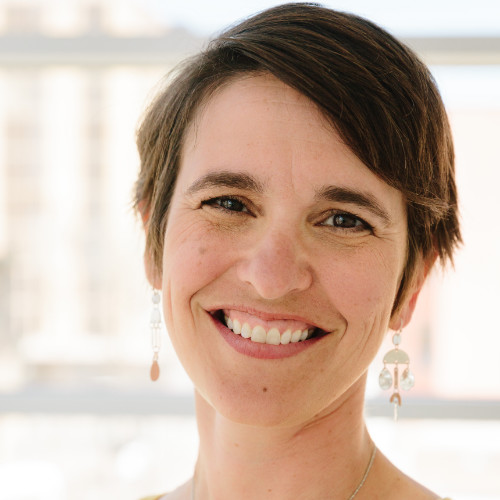 Allison Volkman
Allison Volkman
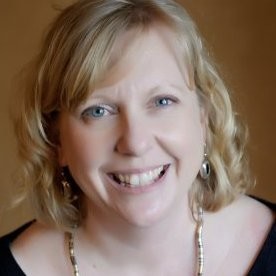 Anneliese Dickman
Anneliese Dickman
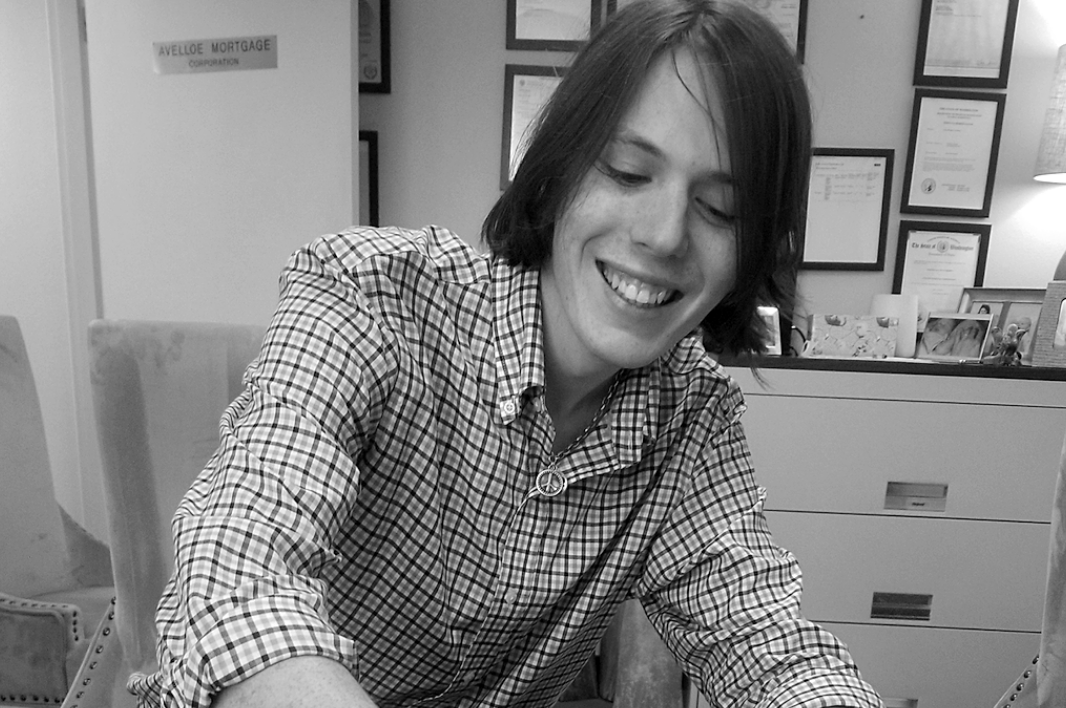 Eli Counce
Eli Counce
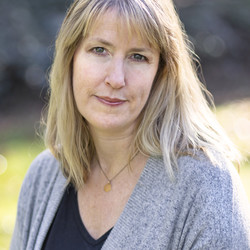 Michelle Roehm McCann
Michelle Roehm McCann
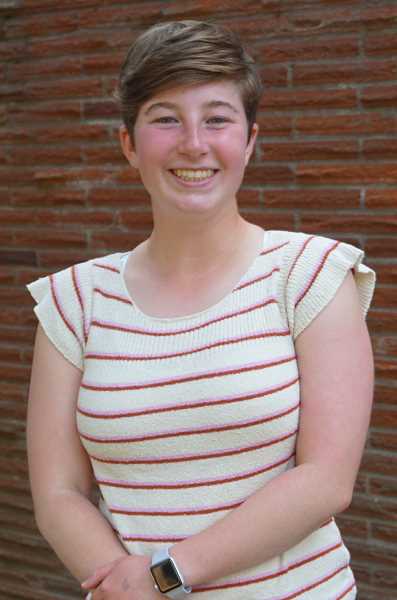 Penelope Spurr
Penelope Spurr




